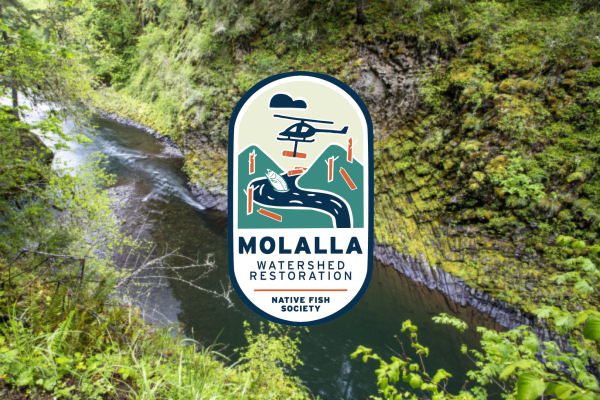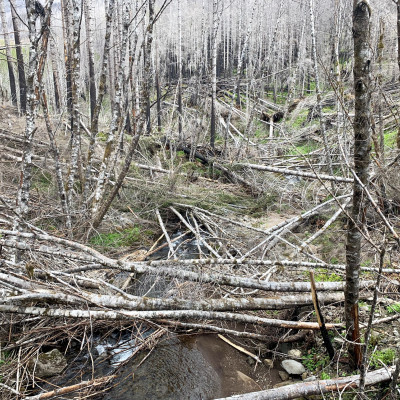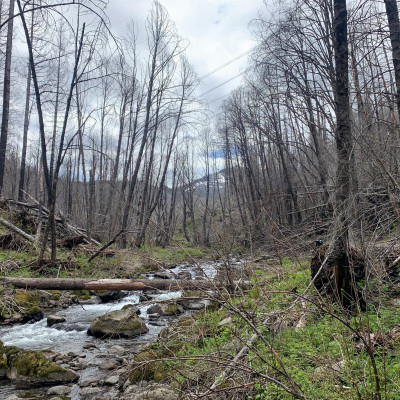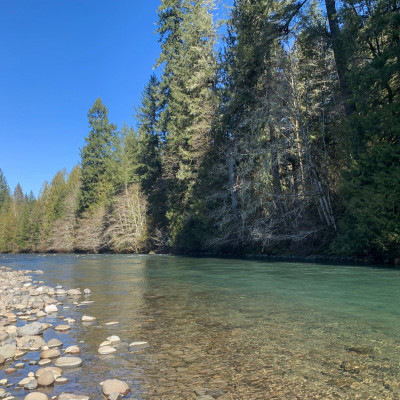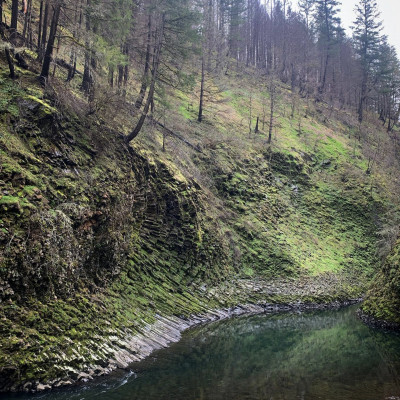Habitat restoration is essential to the survival and recovery of important wild fish populations, such as spring Chinook salmon, winter steelhead, and Cutthroat trout, that call the Molalla River home. By restoring degraded areas and reconnecting critical spawning and rearing habitats, we can create more suitable habitats for wild fish to thrive. This can help to increase the size and health of wild fish populations, improve water quality, and enhance the overall ecological health of the river. Habitat restoration can also provide valuable benefits for other species and the surrounding community, such as improved water resources, increased recreational opportunities, and a more resilient ecosystem. By investing in habitat restoration, we can help to secure the future of wild fish in the Molalla River and support a healthy, productive ecosystem for generations to come.
The Threat:
Historic land use practices have taken their toll on native fish in the Molalla River, especially salmon and steelhead. The Molalla River used to support a native run of spring Chinook salmon, with as many as 8,000 wild adults coming back to the river. In the 1940s, the run was estimated between 1,000-1,500 fish. By 1953, only 760 fish came back. Numbers declined steadily during the 1950s and 1960s after many years of intense logging in the drainage, in addition to overfishing and pollution in the Willamette River. The native run of spring Chinook in the Molalla River was gone by the late 1970s. Spring Chinook salmon from the Willamette River were federally listed as threatened under the Endangered Species Act in 1999.
The lower Molalla River still has problems, such as low water from withdrawals, high temperatures in the summer, and fewer side channels. ODFW and the Native Fish Society have done spawning surveys off and on since 2000, finding little natural production of spring Chinook salmon. Poor ocean conditions in recent years have contributed to low returns. A few years ago, ODFW started doing more work to monitor steelhead in the upper Molalla River, also with help from the Native Fish Society. The steelhead surveys showed us how much good habitat is still available for spring Chinook salmon in the upper basin. We decided it was worth taking a chance to bring wild Chinook back to the Molalla River.
Our key area of focus on the Molalla River is Habitat. Learn more about the science behind the 5 H’s and their importance to the revival of wild abundance here.
Our Goals:
Native Fish Society's goal is to recover essential habitat that has been destroyed by 100+ years of logging, and recent fires in a key wild fish river. We also want to continue building relationships with the Confederated Tribes of the Grand Ronde, including supporting their youth environmental science training program. Lastly, to also build relationships with the Oregon Department of Fish and Wildlife, Bureau of Land Management, local landowners, and watershed councils to develop a long-term plan for watershed scale restoration.
How is NFS working to achieve our goal?
We are working on a massive habitat restoration project on the Molalla River that includes adding instream large wood to 10 miles of habitat in key tributaries of the upper Molalla, improving water quality for ESA-listed spring Chinook and winter steelhead as well as the communities of Molalla and Canby, and replanting burned and disrupted riparian forest with native plants. We will also be working with restoration partners to conduct habitat assessments before, during, and after restoration efforts.
Successes & Accomplishments to Date:
Securing contractors for helicopter placement of wood, design of large wood structures, and replanting work
Pre-restoration habitat assessment
Purchasing most of the necessary plants
MAJOR MILESTONE! Obtained major grant funding for project from OWEB and BLM.
How Can You Help?
Get involved!
You can help make a difference in restoring the Molalla River by volunteering, making a donation, or spreading the word about the importance of restoring wild fish rivers. Send us a message if you have any questions, or would like to be notified of any upcoming volunteer opportunities and/or Action Alerts.
